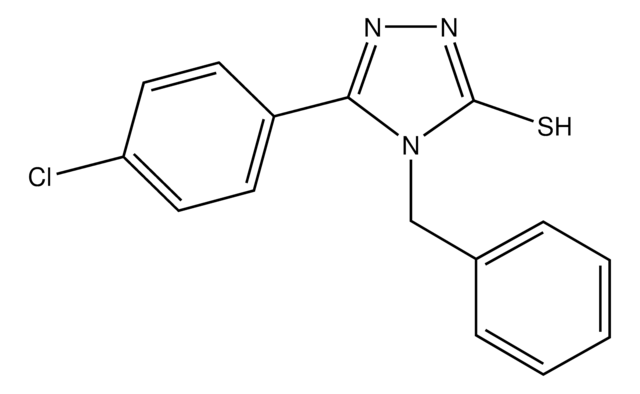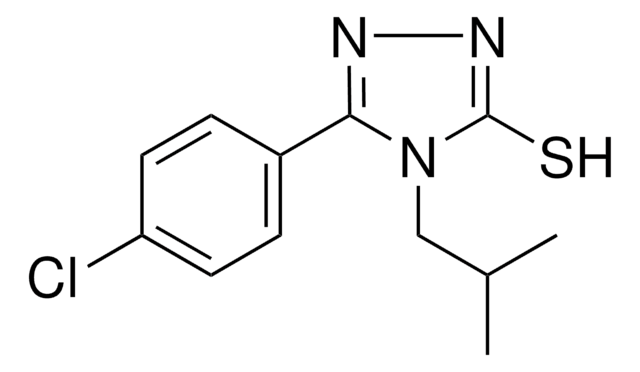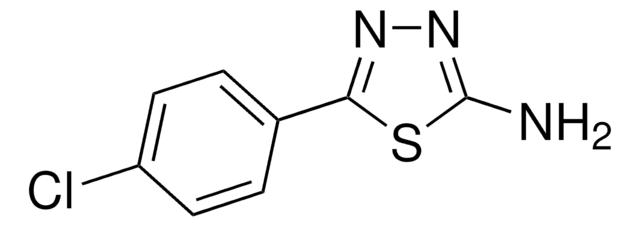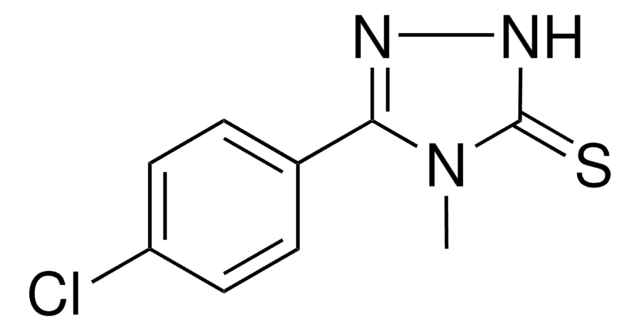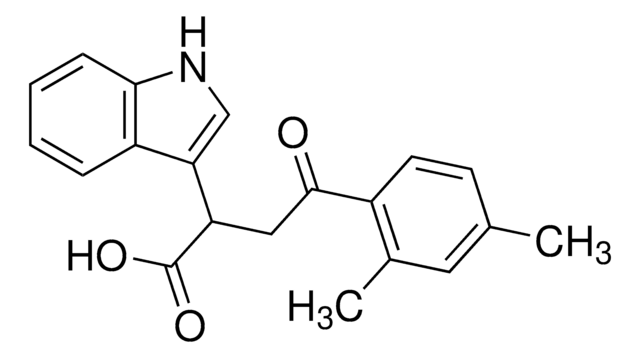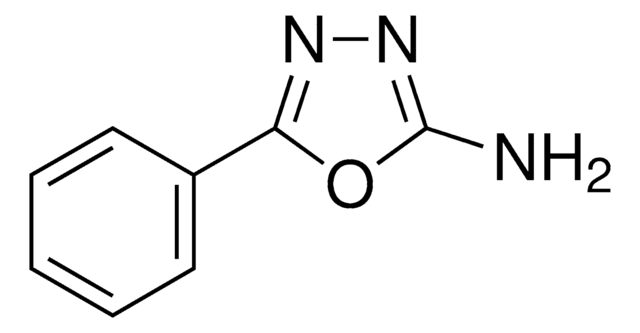573760
5-(4-Chlorophenyl)-2,4-dihydro-[1,2,4]-triazole-3-thione
97%
Sign Into View Organizational & Contract Pricing
All Photos(1)
About This Item
Empirical Formula (Hill Notation):
C8H6ClN3S
CAS Number:
Molecular Weight:
211.67
MDL number:
UNSPSC Code:
12352100
PubChem Substance ID:
Recommended Products
Assay
97%
form
solid
mp
295-299 °C (lit.)
SMILES string
Clc1ccc(cc1)C2=NNC(=S)N2
InChI
1S/C8H6ClN3S/c9-6-3-1-5(2-4-6)7-10-8(13)12-11-7/h1-4H,(H2,10,11,12,13)
InChI key
NHEHIODVWGKDFV-UHFFFAOYSA-N
Storage Class Code
13 - Non Combustible Solids
WGK
WGK 3
Flash Point(F)
Not applicable
Flash Point(C)
Not applicable
Personal Protective Equipment
dust mask type N95 (US), Eyeshields, Gloves
Choose from one of the most recent versions:
Certificates of Analysis (COA)
Lot/Batch Number
Don't see the Right Version?
If you require a particular version, you can look up a specific certificate by the Lot or Batch number.
Already Own This Product?
Find documentation for the products that you have recently purchased in the Document Library.
Chunhui Song et al.
Scientific reports, 10(1), 10866-10866 (2020-07-04)
The plant hormone auxin is essential for plant growth and development. YUCCA proteins catalyse the rate-limiting step for endogenous auxin biosynthesis. In this study, we isolated 20 MdYUCCA genes from apple genome. MdYUCCA6a, MdYUCCA8a, and MdYUCCA10a were expressed in most
Hicham Chahtane et al.
eLife, 7 (2018-08-29)
To anticipate potential seedling damage, plants block seed germination under unfavorable conditions. Previous studies investigated how seed germination is controlled in response to abiotic stresses through gibberellic and abscisic acid signaling. However, little is known about whether seeds respond to
Jie Yu et al.
Molecular biology and evolution, 37(5), 1387-1393 (2019-09-11)
The root originated independently in euphyllophytes (ferns and seed plants) and lycophytes; however, the molecular evolutionary route of root initiation remains elusive. By analyses of the fern Ceratopteris richardii and seed plants, here we show that the molecular pathway involving
Min Cao et al.
Nature, 568(7751), 240-243 (2019-04-05)
The plant hormone auxin has crucial roles in almost all aspects of plant growth and development. Concentrations of auxin vary across different tissues, mediating distinct developmental outcomes and contributing to the functional diversity of auxin. However, the mechanisms that underlie these
Xie Dang et al.
Cell reports, 30(11), 3904-3916 (2020-03-19)
The flowers of angiosperm species typically contain specialized conical cells. Although substantial progress has been achieved regarding the mechanisms underlying flower development, little is known about how petal cells achieve final conical shape. Here, we use 8-hydroxypyrene-1,3,6-trisulfonic acid trisodium salt
Our team of scientists has experience in all areas of research including Life Science, Material Science, Chemical Synthesis, Chromatography, Analytical and many others.
Contact Technical Service